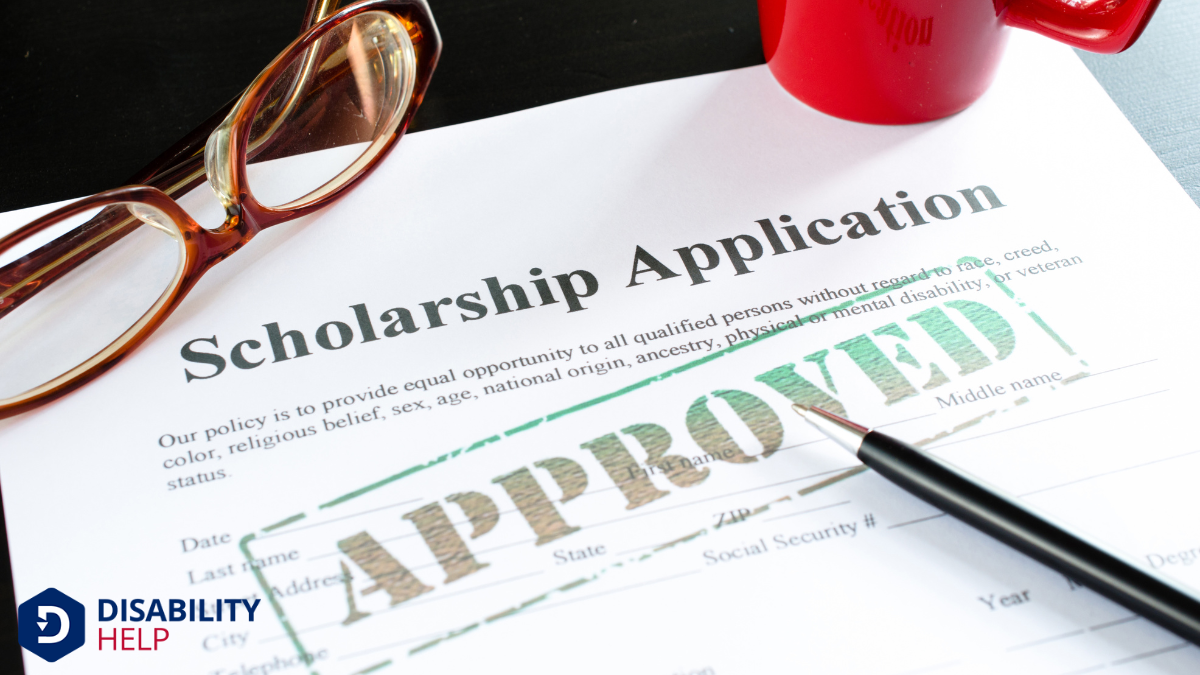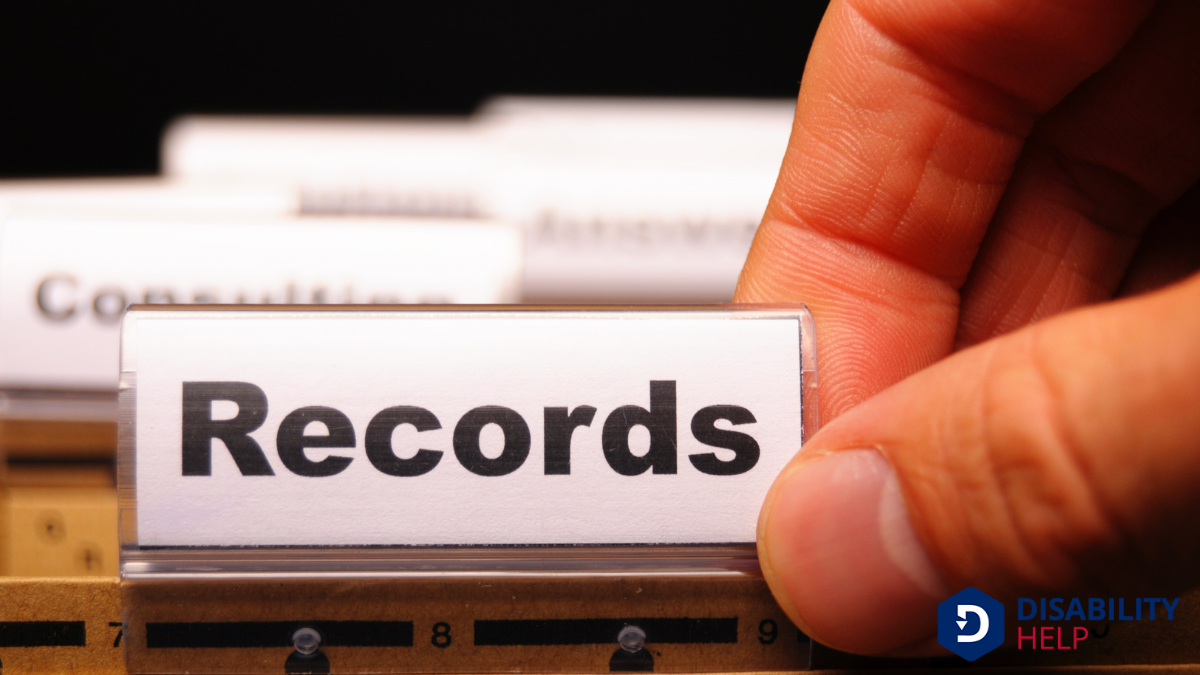When applying for scholarships aimed at students with disabilities, you'll likely need to provide documentation. This requirement guarantees that the scholarship is awarded fairly and to those who truly qualify. But what kind of documents do you need, and how do you gather them effectively? Understanding these aspects can make or break your application, so it's vital to grasp their importance. Wondering where to start?
Key Takeaways
- Scholarships for disabilities typically require documentation to verify eligibility and condition specifics.
- Proof of disability status is often mandatory in scholarship applications.
- Medical records and professional letters detail the disability's nature and impact.
- Academic records, like transcripts, demonstrate educational achievements and potential.
- Documentation ensures a fair assessment and supports the applicant's qualifications.
Understanding Scholarship Eligibility for Students With Disabilities
When steering through scholarship opportunities, it's important to understand the specific eligibility criteria for students with disabilities. You need to focus on the unique requirements each scholarship presents. Some scholarships cater exclusively to particular disabilities, while others may be broader.
It's vital to carefully read each scholarship's guidelines to guarantee you meet their criteria. Pay attention to aspects like the type of disability, educational level, and any additional prerequisites.
Being proactive in your research will empower you to find opportunities that align with your circumstances. Don't hesitate to reach out to scholarship providers for clarification if anything seems ambiguous.
Understanding these criteria not only saves you time but also increases your chances of successfully securing financial aid tailored to your needs.
The Role of Documentation in Scholarship Applications

Although it might seem like a tedious task, gathering the right documentation is crucial in scholarship applications for students with disabilities. Documentation plays a significant role in providing evidence of your eligibility and guaranteeing a fair assessment of your application. Without it, you might miss out on valuable opportunities.
To create an effective application, focus on compiling the necessary documents that clearly demonstrate your qualifications.
Consider these key points to help you visualize the process:
- Documentation as proof: It verifies your disability and unique needs.
- Accuracy matters: Confirm all details are correct and up-to-date.
- Organization is key: Arrange documents neatly to present a clear case.
- Authenticity counts: Use official documents that are credible and verifiable.
Prioritize documentation to strengthen your scholarship application.
Types of Documentation Typically Required
To navigate the scholarship application process effectively, you need to understand the types of documentation typically required. Most scholarships for disabilities ask for proof of your disability status. This might include letters from qualified professionals, such as educators or counselors, who can confirm your condition and its impact on your education.
It's crucial to have official documents that clearly state your diagnosis.
Additionally, schools often request academic records to assess your educational background and achievements. Be prepared to submit transcripts or other proof of your academic performance.
Some scholarships might also ask for a personal statement or essay, where you can explain your experiences and how the scholarship will help you achieve your goals.
Gathering these documents will guarantee you're well-prepared for your application.
Medical Records and Professional Evaluations
Obtaining medical records and professional evaluations is an essential step in applying for scholarships for disabilities.
You'll need to demonstrate the nature and extent of your disability clearly. These documents serve as a foundation for proving eligibility and ensuring that you receive the support you deserve.
Here’s what to take into account:
- Medical Records: Gather recent medical reports from your healthcare providers.
- Doctor’s Statement: Obtain a letter from your doctor detailing your condition and its impact on daily life.
- Psychological Evaluations: If applicable, include assessments from licensed psychologists.
- Specialist Reports: Collect any evaluations from specialists relevant to your disability.
Each piece of documentation helps paint a complete picture of your situation.
Keep these records organized and up-to-date, ensuring a smooth application process.
Academic Records and Their Importance

When applying for scholarships for disabilities, your academic records play an essential role in demonstrating your educational achievements and potential. They’re not just a collection of grades; they reflect your dedication, hard work, and ability to overcome challenges.
Scholarship committees want to see how you’ve performed in your studies and how you’ve managed your educational journey despite any obstacles. Your transcripts, report cards, and any honors or awards you’ve received provide a snapshot of your academic journey.
These documents help paint a picture of your commitment to learning and your readiness to succeed in further education. Remember, showcasing your academic strengths can greatly boost your scholarship application, highlighting your perseverance and intellectual capabilities to those evaluating your eligibility.
Navigating the Application Process With Ease
While applying for scholarships, having a clear strategy can greatly simplify the process. Start by gathering all necessary documentation early. This guarantees you're prepared and avoids last-minute stress.
Research each scholarship’s specific requirements, as they can vary considerably. Create a checklist to track your progress and submissions efficiently.
Consider these steps to streamline your application process:
- Organize your documents: Keep everything in one place, digitally or physically, for easy access.
- Set reminders: Use a calendar to note deadlines and allocate time for each task.
- Draft a personal statement: Tailor it to highlight your unique strengths and experiences.
- Seek feedback: Have someone review your application for clarity and completeness.
Common Challenges and How to Overcome Them
Applying for scholarships can be intimidating, especially when you encounter challenges unique to disabilities. You might face difficulties like obtaining up-to-date documentation or maneuvering complex application processes. These challenges can feel overwhelming, but you can overcome them with preparation and persistence.
Start by understanding exactly what's required—read each scholarship's guidelines carefully. Don’t hesitate to reach out to scholarship providers for clarification if needed.
Organize your documents early and guarantee they clearly demonstrate your eligibility. Sometimes, it’s about presenting your story compellingly. Practice telling your narrative and highlighting your achievements despite obstacles.
Resources for Gathering Necessary Documentation

Securing the right documentation is essential, as it serves as the foundation of your scholarship application. Thankfully, several resources can help you gather what's needed.
Start by reaching out to your healthcare provider. They can supply medical records or a doctor's letter verifying your condition. It’s also wise to contact educational institutions, as they might've school records or Individualized Education Plans (IEPs) on file.
Don’t overlook organizations dedicated to your specific disability; they often provide guidance and support.
Here’s how you can gather documents:
- Healthcare providers: Obtain medical records or professional evaluations.
- Educational institutions: Request school records and IEPs.
- Disability organizations: Seek assistance and relevant documentation.
- Online portals: Access necessary forms and instructions.
These steps will streamline your documentation process.
Privacy Concerns and Confidentiality Measures
As you gather documentation for your scholarship application, privacy concerns may arise, but handling them proactively can safeguard your sensitive information.
Begin by understanding what details are required and why. You’ve got the right to inquire how organizations protect your data. Don’t hesitate to ask about their confidentiality measures.
Before submitting, verify that the application platform uses secure encryption to protect your documents. It’s wise to keep copies of everything you send and note who receives it.
When possible, use direct, secure methods for transferring sensitive documents. Remember, your privacy is vital, and taking these steps helps maintain control over your personal information.
This proactive approach not only protects you but also builds trust with the scholarship providers.
Tips for a Successful Scholarship Application
While pursuing scholarships, a strategic approach can greatly enhance your chances of success. Start by understanding the specific requirements of each scholarship. Tailor your application to highlight your unique strengths and experiences related to the scholarship's focus.
Consider these actionable tips:
- Research Thoroughly: Immerse yourself in the scholarship's history and goals to align your application with their mission.
- Showcase Your Story: Share personal experiences that reflect resilienceThe ability of individuals with disabilities to cope with and adapt to challenges and adversity. and determination, making your application memorable.
- Proofread Meticulously: Errors can detract from your message, so make certain your application is polished and professional.
- Seek Feedback: Ask mentors or peers to review your application, providing insights that could improve it.
Conclusion
In your quest for scholarships for disabilities, remember that documentation is key. Gather your medical records, professional evaluations, and academic transcripts with care. By organizing these documents, you not only strengthen your application but also guarantee a fair assessment. Don't let common challenges deter you—use available resources to navigate the process. Always be mindful of privacy concerns and confidentiality. With thorough preparation, you're setting yourself up for a successful application and a brighter educational future.






